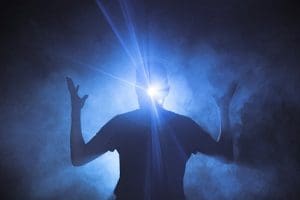As Indian Country sits upon a hill overlooking the valley below, what does it see? What does it hear? And most of all, what does Indian Country feel about what is occurring below?
 Over the last few months, we are realizing that what we think we see is not what we see. What we think we hear is not what we are hearing. We think we are aware of things around us but find that reality is far different than our senses inform. It is these times that we re-evaluate, find ways to re-calibrate and form new ideas. We at NICOA are constantly evaluating, questioning and challenging what we think is around us: politically, programmatically and philosophically.
Over the last few months, we are realizing that what we think we see is not what we see. What we think we hear is not what we are hearing. We think we are aware of things around us but find that reality is far different than our senses inform. It is these times that we re-evaluate, find ways to re-calibrate and form new ideas. We at NICOA are constantly evaluating, questioning and challenging what we think is around us: politically, programmatically and philosophically.
It is through this process that we find creative and innovative ideas — ideas and positions that challenge our existing paradigms. We are not complacent and comfortable with the present because the future is here. Over 300,000 Indian elders are out there today. They experience pain, love, sadness, happiness and through all this, they remain hopeful and determined to ensure that the younger generation maintains their culture, language, traditions and spirituality into the distant future.
In the next decade it is projected that this population will exceed 500,000. As the next generation of elders succeed the preceding generation, their values and characteristics will change. This will require dismantling the assumptions made about the preceding generation and creating new ones. This is the future that NICOA sees and predicts.
Indian Country, Indian elders and tribal leaders should expect these changes and the uncertainty they bring. Uncertainty creates suspicion and fear. What will be the one major change to occur over the next few decades? One in three Indian elders will be diagnosed with Alzheimer’s disease or dementia. They will require caregivers and with the increasing aging population, how we care for them will be the next issue facing tribes.
NICOA is currently advocating for increased funding for the reauthorization of the Older Americans Act, Title VI program with an emphasis on caregiver programs. We and Indian Country can’t do this alone — we must find others to help advocate for our cause.
This is what we, NICOA, see and hear. We need your help and support.
Leave a Reply